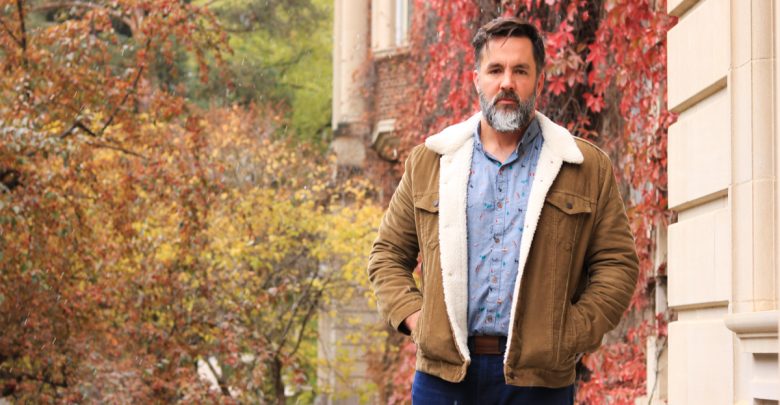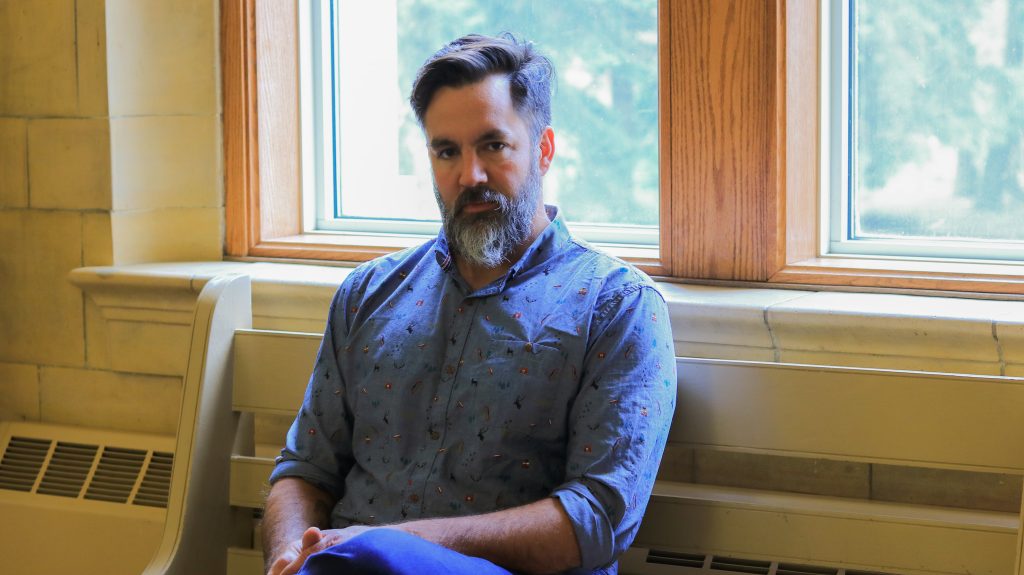 Haley Dang
Haley DangRussell Cobb, a professor in the University of Alberta’s department of modern languages and cultural studies, has always been interested in charismatic Christianity, having grown up in the middle of the bible belt in Tulsa, Oklahoma.
Recently, his work on Reverend Carlton Pearson’s fall from the evangelical church was developed into a Netflix movie. The movie, Come Sunday, starring Chiwetel Ejiofor as Carlton Pearson and featuring Danny Glover and Condola Rashad, was released on April 13.
“It’s pretty cool [to have one of my works made into a movie], but I’m not much of a movie person,” Cobb said. “I don’t feel like it’s the crowning achievement or something, but I’m really happy for Pearson and that it gave him a new audience.”
Pearson, a protege of televangelist Oral Roberts, had one of the largest churches in Tulsa and was only one of two African-American ministers to appear on national television. However, Pearson lost followers after he stopped believing in eternal damnation and started questioning other tenents of fundamentalist Christianity. Eventually, Pearson broke away from his congregation and began preaching his doctrine of the Gospel of Inclusion.
“It’s very common that people in that world often lose their flock of followers because of financial malfeasance or sexual affairs or both. I thought it was interesting that [Pearson’s story] didn’t have anything to do with that,” Cobb said. “It was more like his ideas were too much for people.”

In 2005, after encountering an article about Pearson’s practices, Cobb, a journalist by training, began working on a radio documentary to capture Pearson’s story. Cobb chose radio as a medium to capture Pearson’s strong and powerful voice. In 2005, the story was released as “Heretics,” the 304th episode of This American Life, an hour-long National Public Radio show that reaches over two million people weekly.
Though they both lived in Tulsa, Cobb and Pearson came from different backgrounds: Cobb grew up in a very well-to-do, white, Christian community while Pearson was from a spiritual, charismatic Christian, black community.
“I felt like I was interested in him but that we didn’t have much in common,” Cobb said. “But the more that I studied it and got to know him, the more I think that we have a lot in common. [Pearson and I] are products of a culture, a deeply conservative culture. I rebelled against that and he rebelled against that, and I think that’s where we found common ground.”
Some stories from This American Life are chosen to serve as the basis for movies. After years of working with producers of the radio show to ensure that the film would actually be made, Cobb sold the rights to his work to Netflix in 2016.
“[Netflix] took the basis of the story that I did for the radio documentary and then went in a fictional direction,” Cobb said. “I don’t have any problem with that, because I know Carlton worked very closely with the producer and director. If he’s okay with that, then I’m okay with that—it’s his story.”
Currently, Pearson spends his time guest-preaching, lecturing and travelling around the world.
“[Pearson] works hard to talk to people who may not believe the way he believes,” Cobb said. “I think that that is something that we really need in society — to reach across these seemingly unbridgeable divides, often religious, racial, or political, and he encompasses all those things.”
At the U of A, Cobb hopes to bridge print and radio journalism with digital humanities. He is currently working on a book about hidden stories and people in Oklahoma.
“My main angle is to take what would be considered traditional scholarship and then do what journalism does — tell relevant, truthful stories to people to make a difference in their lives.”




